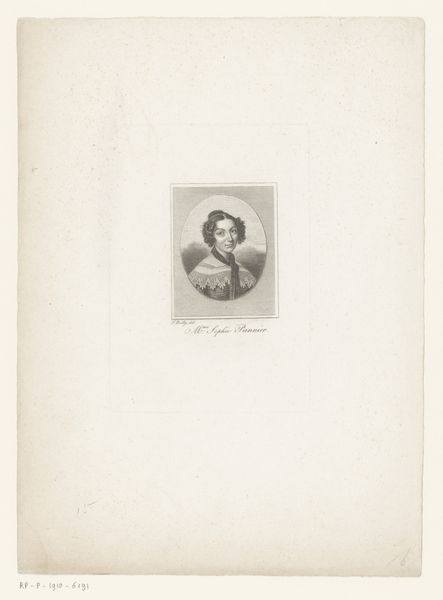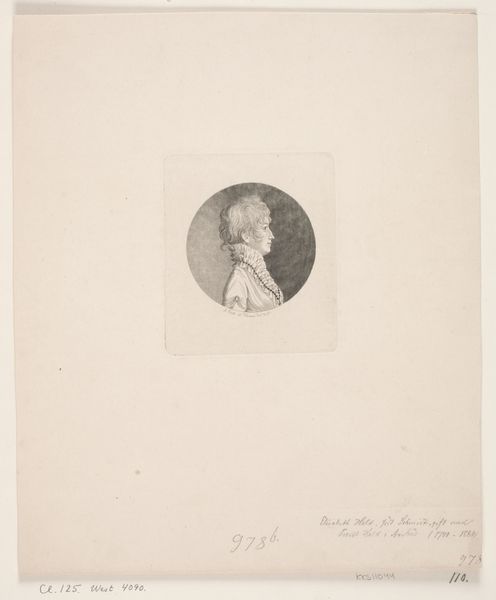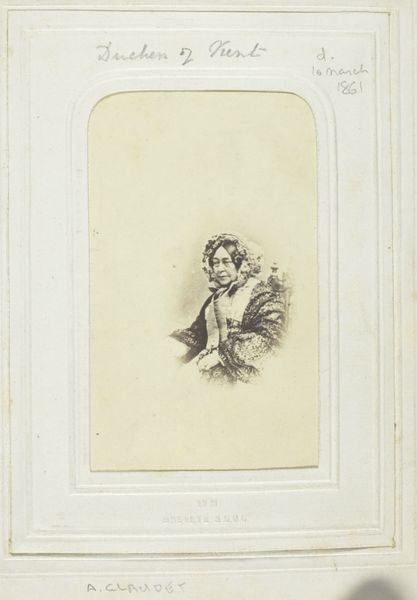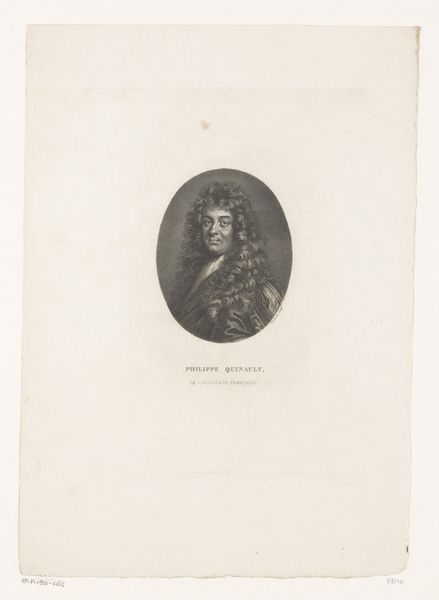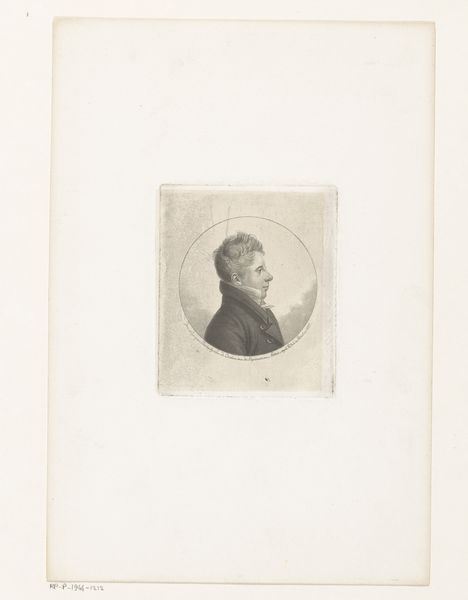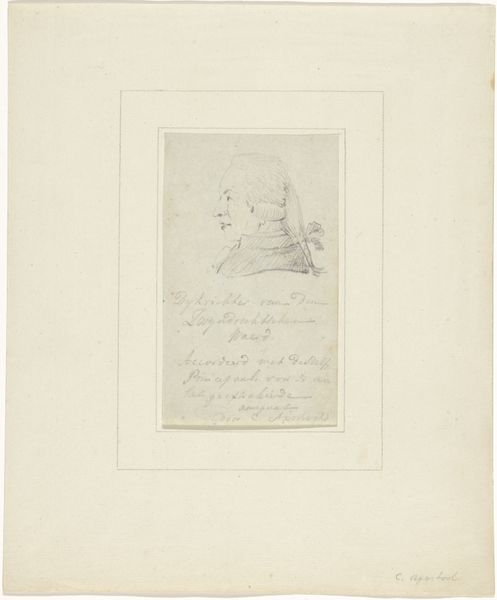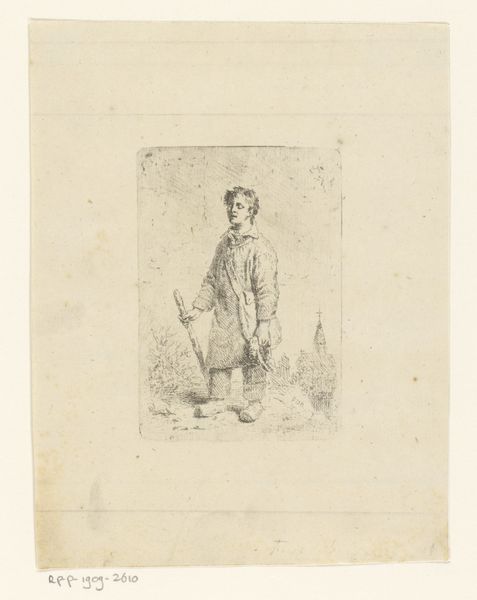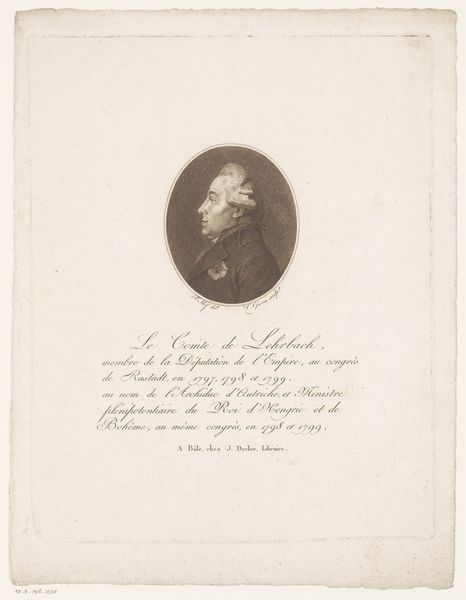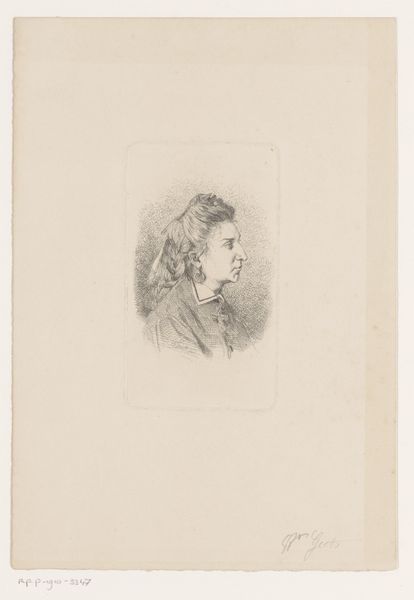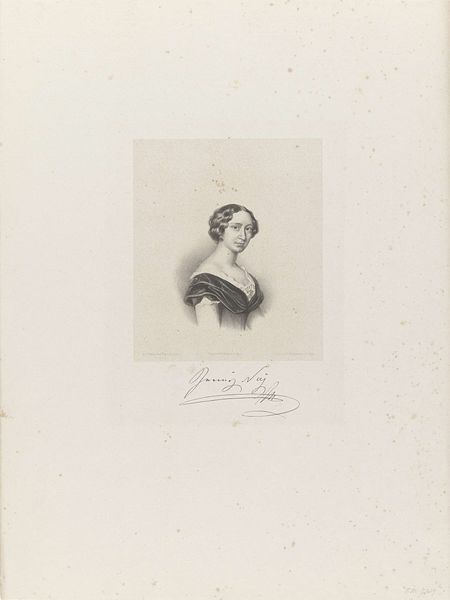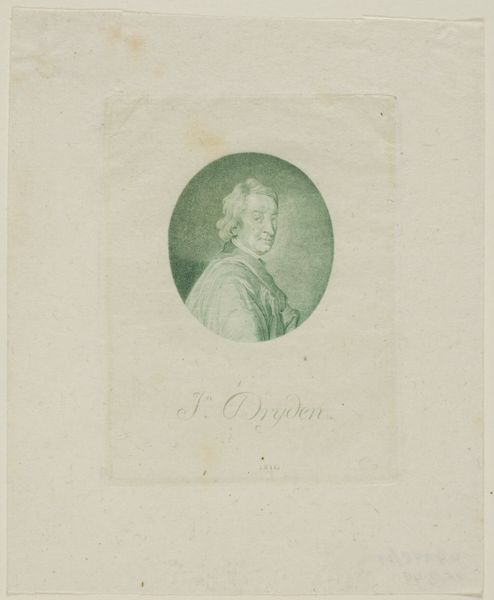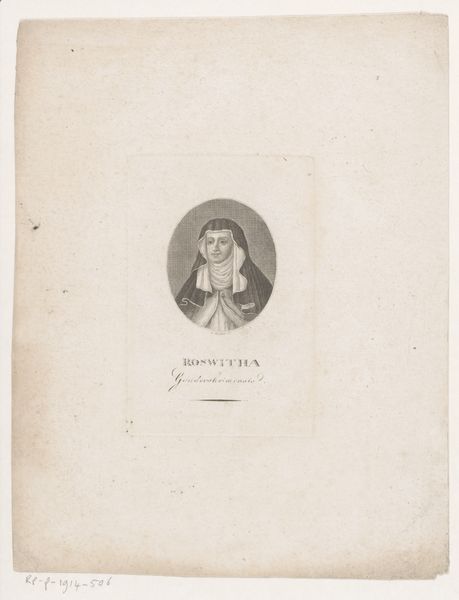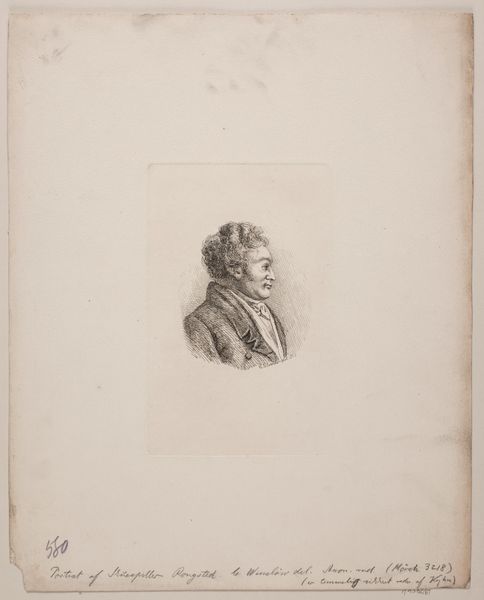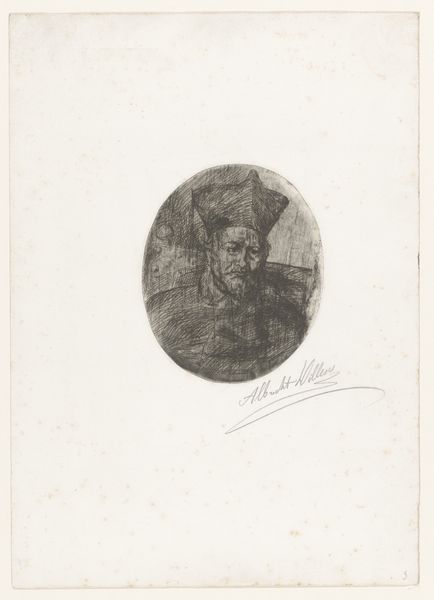
engraving
#
portrait
#
baroque
#
engraving
Dimensions: height 49 mm, width 48 mm
Copyright: Rijks Museum: Open Domain
Editor: Here we have "Portret van een onbekende man, mogelijk J. D. Weitz," an engraving, placing it somewhere between 1610 and 1655, by Sebastian Furck. It's an intriguing Baroque portrait; the man’s gaze is so direct. What draws your attention in this work? Curator: The oval frame is not merely decorative. It's a potent symbol, representing cycles, containment, and the universe. The text encircling the sitter reinforces this symbolic boundary. Look closely at his attire; the lace collar signifies status and perhaps moral purity, reflecting values important in that era. Notice too, the man's carefully groomed moustache. Consider the cultural significance of such displays of masculinity. The gaze suggests a need to appear confident, commanding… perhaps a projection rather than a true state of being? Editor: So the choice of symbols around him, combined with his expression, speaks to the values that were appreciated at the time? How do you interpret this portrait as a memory of cultural values? Curator: Yes, precisely. Engravings, more easily reproduced than paintings, helped standardize images and their meanings across society. The way he presents himself embodies desired qualities: piety, authority, prosperity. Furck uses line and texture to build up those signifiers of class, while subtly hinting at a certain unease beneath the surface, wouldn't you say? This interplay preserves the cultural memory of what was considered aspirational, but it also reveals potential tensions. Editor: That makes perfect sense! It is not just a picture but a cultural emblem. Thank you. Curator: A rich little window into a different way of viewing the world. Indeed, my pleasure.
Comments
No comments
Be the first to comment and join the conversation on the ultimate creative platform.
